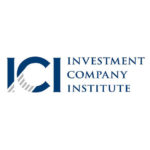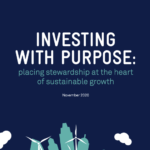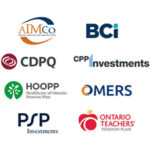Why investors use SASB Standards
Leading global investors want to evaluate how companies are managing their sustainability-related risks and opportunities. Investors need access to comparable, standardised data they can use to inform their decisions.
SASB Standards, which are uniquely tailored for investors, help address this need. Because they are industry-based, metric-driven and focused on the risks and opportunities most likely to affect cash flows, access to finance and cost of capital, SASB Standards enable integration of sustainability considerations into investment and stewardship decisions across global portfolios and asset classes. They also provide investors with comparable data that feeds the data and analytics ecosystem.
Leading international investors support SASB Standards as a fundamental way for companies to communicate relevant sustainability information to investors in an industry-based and comparable way. These investors—across markets, asset classes and strategies—use SASB Standards to integrate sustainability considerations into their investment decisions.
As of August 2022, the International Sustainability Standards Board (ISSB) of the IFRS Foundation assumed responsibility for the SASB Standards. The ISSB has committed to maintain, enhance and evolve the SASB Standards and encourages preparers and investors to continue to use the SASB Standards. This commitment includes a prominent role for SASB Standards in the IFRS Sustainability Disclosure Standards, which leading global investors support.
SASB Standards help investors…
- Access corporate sustainability data that is comparable, consistent and likely to affect an entity’s cash flows, access to finance and cost of capital
- Identify priority issues for corporate engagement
- Improve the quality of fundamental equity and credit analysis in both public and private markets by incorporating a broader information set beyond financial statements
- Expand risk reporting to encompass sustainability risks in addition to traditional risk measures like volatility
- Develop a better understanding of sector-specific risks to inform risk allocation and risk management
- Fulfil PRI signatory commitments
Click here to learn more about how investors use SASB Standards.





